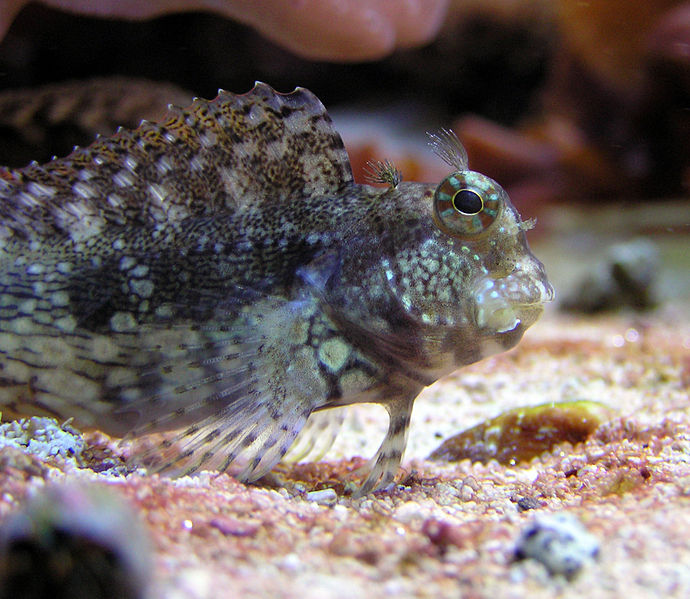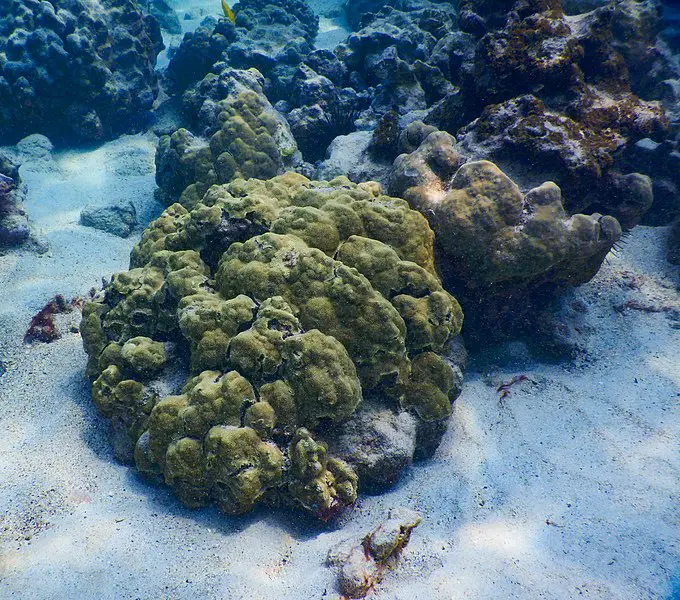Anyone running a saltwater aquarium knows how valuable the addition of lawnmower blennies can be.
Beautiful, quirky, fun fish that do a great job of keeping your saltwater tank clean and free of algae, these little miracles belong in any and every saltwater aquarium – especially if you want a more hands-free approach to tank maintenance.
At the same time, a lawnmower blenny isn’t exactly a “set it and forget it” kind of aquarium resident.
You need to be sure that you are supporting them as best you can, not just with plenty of algae to eat (which is a huge piece of the puzzle) but also with perfectly dialed in water conditions and plenty of “room to roam”.
A lot of aquarium owners that treat their lawnmower blennies like a set it and forget it kind of solution pretty quickly realize that their tank is overwhelmed by hair algae that these fish just don’t seem to care for.
What’s up with that?
Find out in this detailed breakdown!
Will Lawnmower Blenny Eat Hair Algae?
Lawnmower blennies have an almost legendary reputation for chopping up all different kinds of algae, keeping saltwater aquariums free and clear of this invasive problem – all without a whole lot of headache and a whole lot of hassle.
Unfortunately, though, a lot of new owners of a lawnmower blenny discover pretty quickly that the one kind of algae these fish rarely go after is hair algae.
A particularly nasty kind of algae that takes root rather quickly, spreads just as fast, and can be next to impossible to eradicate without you having to physically get involved, hair algae is a scourge in the aquarium world.
Worst of all, lawnmower blennies (by and large) just aren’t going to do anything to keep this kind of algae growth in check.
But not for lack of trying!
Every lawnmower blenny is going to do their level best to eat as much film algae as possible off of your underwater substrate, your rocks, the glass of your aquarium, and often even right off the skin of your plants, too.
When it comes to hair algae, though, sometimes aren’t all that effective in keeping this kind of algae growth under control. Which is a little wild, considering the fact that they are called “lawnmower” fish in the first place – and that’s exactly what hair algae sort of looks like.
What Kind of Algae Does a Lawnmower Blenny Eat?
While lawnmower blennies generally have a tough time keeping hair algae in control they go absolutely wild for pretty much every other type of algae in your tank!
Filamentous algae in specific is a big favorite for these kinds of fish, helping to give them all the basic nutrients they need when they are first getting established in your underwater world.
These kinds of fish are going to spend most of their lives hunting down food sources, which means they are going to scrub your tank clean of any algae growth they can come across.
They’ll suck on hair algae, especially when it’s first begins to establish itself – but once it takes hold they have a much tougher time turning this invasive pest into a reliable food source.
Do All Blennies Eat Hair Algae?
You are going to have a tough time finding any blenny in the underwater world that doesn’t go wild for algae.
These little fish just love microalgae in most every and any form of imaginable, but they also eat a whole bunch of other food sources as well – including (but not limited to):
- Hikari Mega Marine Food
- Reef Nutrition Formulas
- Seaweed Pellets
- Zoomed Spirulina
In fact, it’s not a bad idea for you to research different types of food sources for lawnmower blennies and to make sure that you have plenty of it on hand.
These fish are notorious for starving themselves in home aquariums, especially if you keep your water conditions really dialed in and take proactive steps to eliminate algae all on your own.
On the one hand, you keep your tank free and clear of algae.
On the other hand, though, you (quite literally) and up starving out these fish.
At the end of the day, it might not be a bad idea to get your hands on some algae wafers that you can add into the tank every now and again. Use targeted feeding approaches to make sure that your lawnmower blenny gets the food they need without a lot of extra effort, too, and you’ll be doing them a great service.
You should also know that lawnmower blenny fish can be “trained” to eat things like brine shrimp and mysis shrimp as well.
That’s good news if you are feeding this kind of stuff to other underwater creatures in your aquarium, but you have to be sure that you aren’t loading up your lawnmower blenny with a 100% carnivorous diet.
You’ll end up doing a lot more harm than good!
Will a Lawnmower Blenny Eat Brown Algae?
You bet they well!
Not only are lawnmower blennies perfect for attacking filamentous algae, they also do a great job at going after diatoms as well.
Turn one of these little bugs loose in your aquarium when you start to notice a buildup of Brown algae and you’ll see the problem is almost gone completely in just a couple of days.
If you really want to be sure that Brown algae is scrubbed from your tank (naturally, of course, without having to add all kinds of chemical cleaners into the mix) you’ll want to add a couple of lawnmower blennies into the mix – provided you have tank capacity to support them – as well as a couple of snails.
You might never have to worry about Brown algae and other diatoms ever again with this kind of approach.
All things considered, if you are going to be taking care of your own underwater saltwater kingdom it’s important to make sure that you leverage lawnmower blennies to keep algae growth under control.
They might not be able to do a total bang up job on hair algae (though they’ll do their best), but they’ll keep absolutely everything else in check for you.


